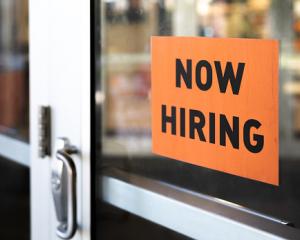While there was encouraging evidence of a rebound in Canterbury, the recovery had stagnated in the rest of the country, NZIER principal economist Shamubeel Eaqub said yesterday.
The drop in business confidence was not surprising given the escalation of the euro zone crisis over the past few months and the unsettling second Greek election. A similar drop in confidence was seen in the fourth-quarter last year, when the crisis last peaked, ASB economist Daniel Smith said.
The seasonally adjusted measure of general business confidence fell to -1 from 21 in March, meaning general confidence was roughly back to where it was in December last year, when the reading was 2.
The reading for firms' own activity levels over the next quarter also fell, from 22 to 9.
That was the weakest reading since March last year, when the Christchurch earthquake sent the "own activity" measure down to 4, Mr Smith said.
The NZIER said labour market improvement had stalled outside Canterbury, which was consistent with modest employment and wage growth.
Capacity pressures were emerging in Canterbury, mainly in the building sector, while there was excess capacity elsewhere. The NZIER predicted the Reserve Bank would keep interest rates on hold for some time.
The BNZ's latest confidence survey showed sentiment about the condition of the New Zealand economy a year from now had improved slightly over the past month. Sentiment was still near the bottom end of the range of the past three years, which did not suggest there would be much improvement in growth in the economy soon.
In residential real estate, comments indicated a shortage of listings in and around Auckland, though not always with upwards pressure on prices, BNZ chief economist Tony Alexander said.
Retailing continued to look very tough as did tourism and, in many other sectors, conditions were flat or just slightly better.
The results suggested businesses were willing to undertake hiring and investment, although not so much in new buildings, but did not support strong economic growth as such, Mr Alexander said.
During the second half of the year, the BNZ expected New Zealand's economic recovery to continue despite international concerns. A strong construction pick-up was anticipated as an important contributor to growth.
The bank anticipated the Reserve Bank would raise the official cash rate in the first half of next year, against a backdrop of solid domestic growth and latent inflation pressures, combined with contained global risks.
The bank's core view for the currency remained little changed from three months ago - "a gentle incline, with more potholes". The New Zealand dollar was forecast to be at US82c by year-end.
Electronic card spending increased 0.3% during June, with the largest increases in hospitality and consumables, Statistics New Zealand said yesterday.












